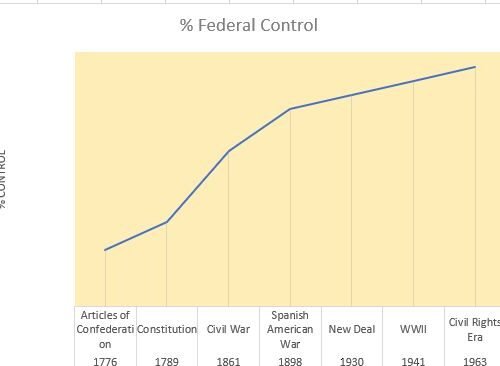
The E in DIE
Social justice groups use the figure above as a meme to show the DIE (Diversity, Inclusion, and Equity) movement to illustrate equity. If all we are discussing is these three people, then it may make some sense. But there is a broader picture than the three spectators. The stadium owners, the paying fans, and the teams also have a stake. If the owners do not make money, the stadium may close. If the teams do not make money, they cannot pay the players and may close. The paying fans will not have a baseball game to watch. This is really an example of the free-rider problem. There are several dimensions to the problem, so let us look at equity more closely.
The Merriam-Webster dictionary defines Equity as:
1
a: justice according to natural law [I added the link] or right specifically : freedom from bias or favoritism
b: something that is equitable
2
a: the money value of a property or of an interest in a property in excess of claims or liens against it
b: the common stock of a corporation
c: a risk interest or ownership right in property
d: a right, claim, or interest existing or valid in equity
3
a: a system of law originating in the English chancery [I added the link] and comprising a settled and formal body of legal and procedural rules and doctrines that supplement, aid, or override common and statute law and are designed to protect rights and enforce duties fixed by substantive law
b: trial or remedial justice under or by the rules and doctrines of equity
c: a body of legal doctrines and rules developed to enlarge, supplement, or override a narrow rigid system of law
Cornell’s Legal Information Institute expands on 3C:
In law, the term “equity” refers to a particular set of remedies and associated procedures involved with civil law. These equitable doctrines and procedures are distinguished from “legal” ones. While legal remedies typically involve monetary damages, equitable relief typically refers to injunctions, specific performance, or vacatur. A court will usually award equitable remedies when a legal remedy is insufficient or inadequate.
The DIE movement seems to focus on 3c and perhaps 1 in the definition above. What is interesting is the Declaration of Independence is rooted in natural law, but the social justice groups want to ignore and, in some cases, bury the Declaration and shape natural law and equity to their own ends. They seem to ignore 2 and 3a. They claim to pursue 1a, but they violate it by discriminating against non-favored groups.
But when we look at the social justice programs with a critical eye, they do not work to the benefit of the targeted groups. They really help the bureaucrats by expanding their role and power. I discussed this in Creating the Monster: The American Bureaucracy. But why do these social justice programs that look so enticing on the surface fail?
I suspect the root cause is that all these programs create a dependency on government and compromise effective standards. When we compromise standards and give people jobs and benefits they do not earn, we kill the concept of merit and excellence. This does three things:
- When people receive things without earning them, they stop working hard and seeking self-improvement. Why bother when there is no proper reward for hard work? This is essentially what happened during communism in Eastern Europe. Crops rotted in the fields. Talent is rotting on the vine as it is not developed and engaged.
- The groups disadvantaged by this mis-applied version of equity likewise lose the desire to work hard. Why bother, when someone less qualified gets the job or promotion and merit does not matter?
- Organizations spend millions of dollars on DIE programs that suck value and resources away from the core mission.
Merit and the quest for excellence fuels our economic engine. The economic engine provides the jobs and resources to fund government programs. The alternative is continually expanding taxes and government debt to pay for these ineffective programs. This approach is effective in two dimensions only: growing a bloated and ineffective bureaucracy and making the people dependent on a large government. The census data, treasury data, and size of the bureaucracy cited in Creating the Monster prove this out. The poor got poorer with these programs and the government grew in size and power.
Perhaps it just correlation and not causation but about the same time DIE programs took root Boeing planes started having problems, prices skyrocketed, our military disgracefully ran from Afghanistan, and federal debt exploded.
Which is a shame. The surface goal of these programs, to get Americans engaged in prosperity, is a good goal, as I discussed in The Faustian Bargain series (1, 2, and 3). This is important for three reasons that spring from the Preamble to the Constitution:
- Stability. Large amounts of poor, non-engaged people will create civil unrest and lead to crime, riots, and possible insurrection.
- Prosperity. Large groups of people that contribute little or nothing to the economy are a drain on resources and a tremendous source of friction in the economy.
- Compassion. While not specifically addressed in the Preamble, I think it is a core component of the American character. de Tocqueville, in Democracy in America, cited it as an American strength, especially that the people rather than the government take action.
The good news is some corporations and universities are shutting down their DIE programs. They need to be replaced with effective training and education programs. We also need to teach critical thinking and virtue in our schools.
Research questions:
- Does government involvement lessens people’s compassion and willingness to help?
- Does government control over huge social programs change American culture and values?
- Should government be involved in social programs? If so, what role should it have?
- How do we restore merit and standards back in American institutions?




